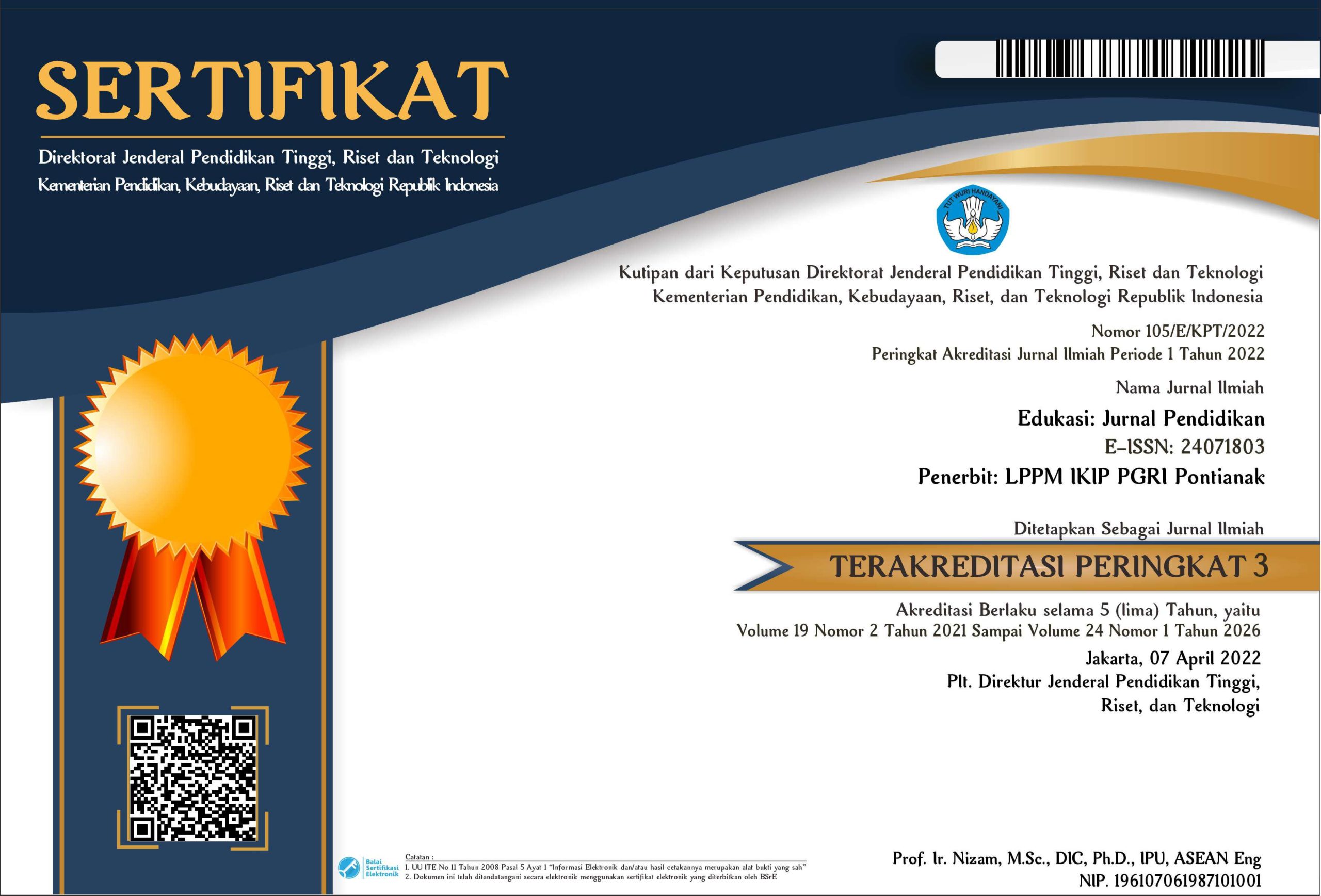A META ANALYSIS STUDY: DIGITAL APPLICATIONS AS LEARNING MEDIA IN ISLAMIC RELIGIOUS EDUCATION
DOI:
https://doi.org/10.31571/edukasi.v22i1.6973Keywords:
digital applications, learning media, meta analysis study, islamic religious educationAbstract
This research aimed to examine the effectiveness of digital application-based learning media in enhancing student learning outcomes in PAI subjects. A total of eleven studies were gathered and analyzed through SPSS 27 software. The research methodology employed was Meta-Analysis. Results indicated a notable improvement in learning outcomes, as the highest score before utilizing digital applications was 78.96, and the lowest was 44.69. Following the implementation of digital applications, the highest score rose to 91.84 and the lowest to 81.32. Statistical analyses, including paired sample t-test and correlation test, demonstrated a significant disparity in learning outcomes pre- and post-use digital applications, with a p-value <0.05. The findings suggest that digital applications effectively enhance students' learning outcomes, offering flexibility, interactivity, and appeal that heighten learner engagement.
Downloads
Downloads
Published
Versions
- 2024-09-11 (2)
- 2024-09-11 (1)
How to Cite
Issue
Section
License
Copyright (c) 2024 Septia Nur Saputri, Tarsono Tarsono, Ahmad Jaelani Nasution, Muflihah, Muhammad Polem, Nurdiyanto, Uus Ruswandi

This work is licensed under a Creative Commons Attribution-NonCommercial 4.0 International License.
Authors who publish in this journal agree to the following terms:
- Authors retain copyright and grant the journal the right of first publication with the work simultaneously licensed under a Creative Commons Attribution License (CC-BY-NC) that allows others to share the work with an acknowledgment of the work's authorship and initial publication in this journal.
- Authors are able to enter into separate, additional contractual arrangements for the non-exclusive distribution of the journal's published version of the work (e.g., post it to an institutional repository or publish it in a book), with an acknowledgment of its initial publication in this journal.
- Authors are permitted and encouraged to post their work online (e.g., in institutional repositories or on their website) prior to and during the submission process, as it can lead to productive exchanges, as well as earlier and greater citation of published work.

 Download: 294
Download: 294


















